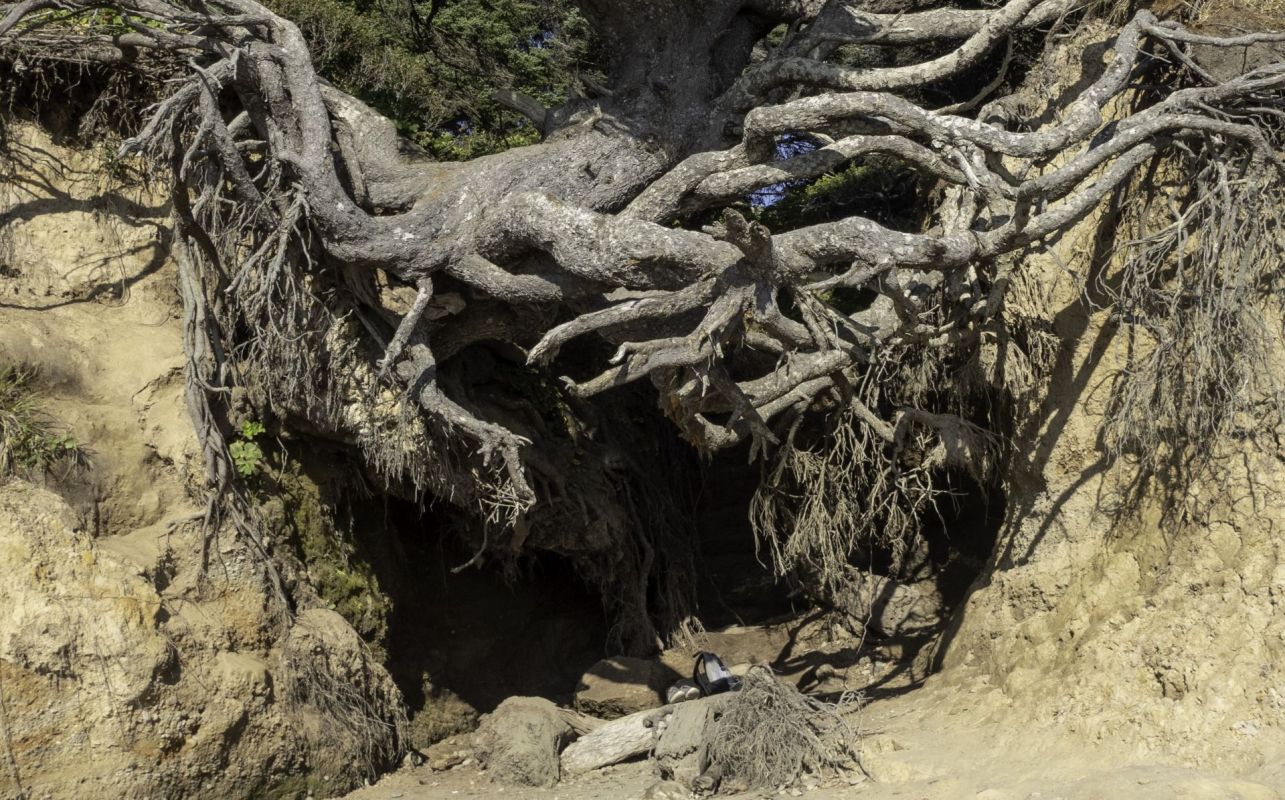The most widely known tree in Washington state's Olympic National Park is slowly collapsing — and thoughtless hikers may be bringing it down faster, Advnture reports.
According to Uprooted Traveler, the Tree of Life, an ancient Sitka spruce, stands near the coast of the Pacific Ocean on Kaloch Beach in Forks, Washington. A stream flowing past it to the ocean has slowly worn away the soil beneath it, so now it straddles two cliffs, its roots hanging in the open air to form the roof of a cave large enough for a person to stand in.
Advnture explains that people do stand in it, but they also climb all over it, and that's the problem. People hanging and walking on the exposed roots puts a lot of weight on the tree, which is just barely being held up by the small portion of its roots still buried in the cliffs. The tree will likely fall one day regardless, but unthinking visitors may be speeding up the process.
Thankfully for the surrounding environment, the Tree of Life is one of many Sitka spruces in the area. The most significant effect of the tree's collapse will simply be that people no longer get to enjoy this incredible and inspiring sight.
However, it does shine a light on the careless ways some people interact with nature. As Sustainable Travel International points out, going off trails, disturbing soil and wildlife, leaving trash, and other harmful interactions can cause real damage to natural environments — and the damage builds up over time.
Some parks and nature preserves take steps to prevent this by marking trails, fencing off attractions, or even placing supports for trees and plants. But Lissy Andros, director of the local Forks Chamber of Commerce, told Fox Weather that it wasn't an appropriate solution in this case because it would eliminate what makes the tree special: the way it clings on despite the odds.
"We're asked: 'Why doesn't somebody go in there and help the tree? Why don't they put braces on the tree or try and fill the tree?'" Andros said. "And I said, 'Well if those things were done, it would not really be what it is now, which is a very resilient anomaly in nature. So I think that it's exactly what it's supposed to be at this moment, and we need to appreciate it and enjoy it as long as we can."
Join our free newsletter for cool news and cool tips that make it easy to help yourself while helping the planet.









